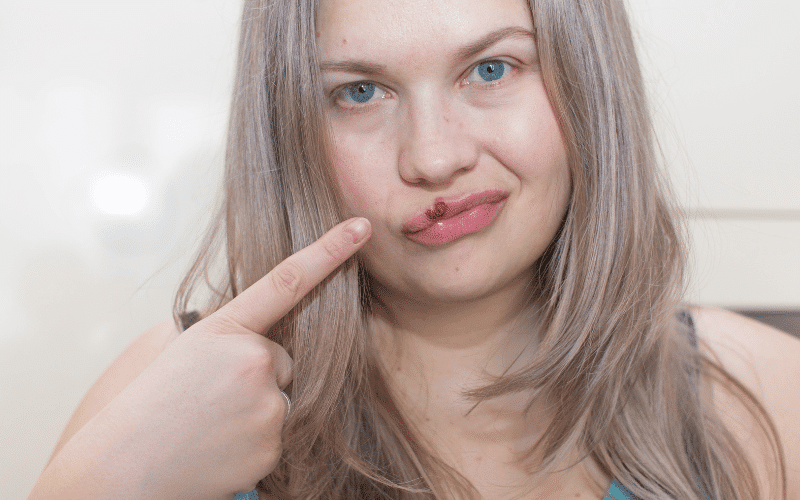6. Cold Sores – The Unwanted Outbreak of Herpes Simplex Virus

Cold sores, also known as fever blisters, are small, painful blisters that typically appear around the mouth, lips, or nose. They are caused by the herpes simplex virus (HSV), which is highly contagious and can be contracted through close personal contact, such as kissing or sharing utensils, towels, or lip balm with an infected person.
There are two types of HSV: HSV-1, which primarily causes cold sores, and HSV-2, which is more commonly associated with genital herpes. However, both types can cause sores in either location.
Once infected with HSV, the virus lies dormant in the nerve cells and can reactivate periodically, causing recurrent outbreaks of cold sores. Factors that can trigger an outbreak include stress, fatigue, hormonal changes, or a weakened immune system.
While there is no cure for HSV, antiviral medications can help manage the symptoms and reduce the frequency and severity of outbreaks. Over-the-counter creams and ointments may provide temporary relief from pain and itching associated with cold sores, but they do not speed up the healing process or prevent future outbreaks.
To prevent the spread of HSV, avoid close contact with individuals experiencing an active outbreak, do not share personal items, and practice good hygiene. If you have recurrent cold sores, speak with your healthcare provider about potential treatment options to manage the condition more effectively. (6)